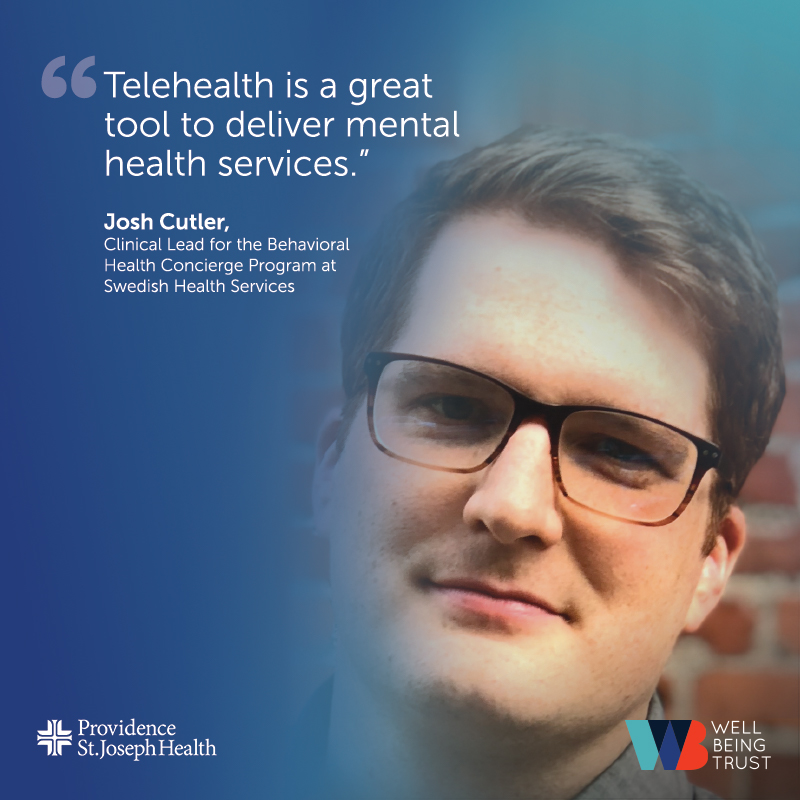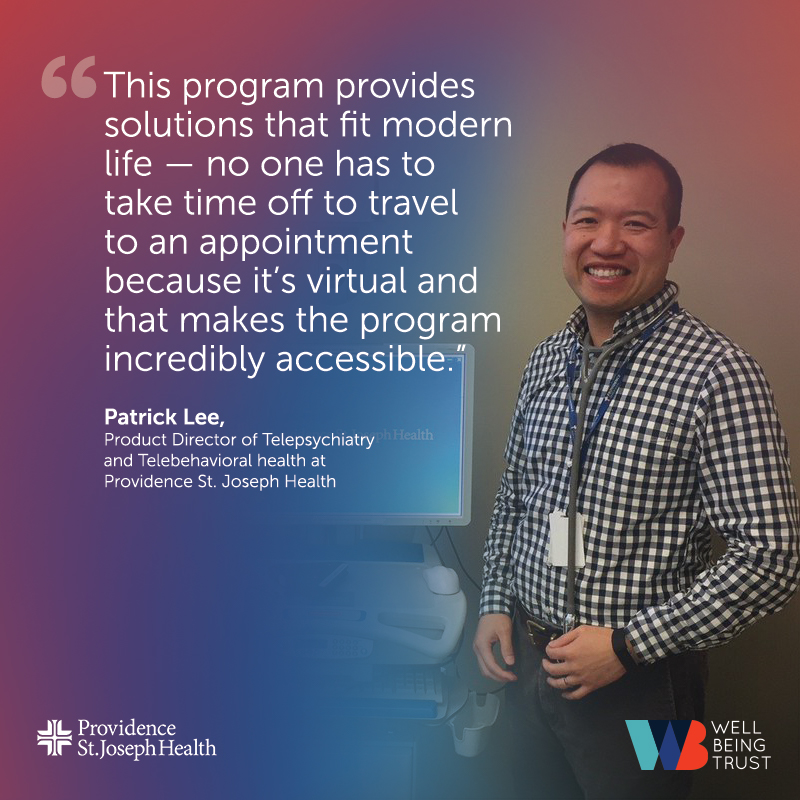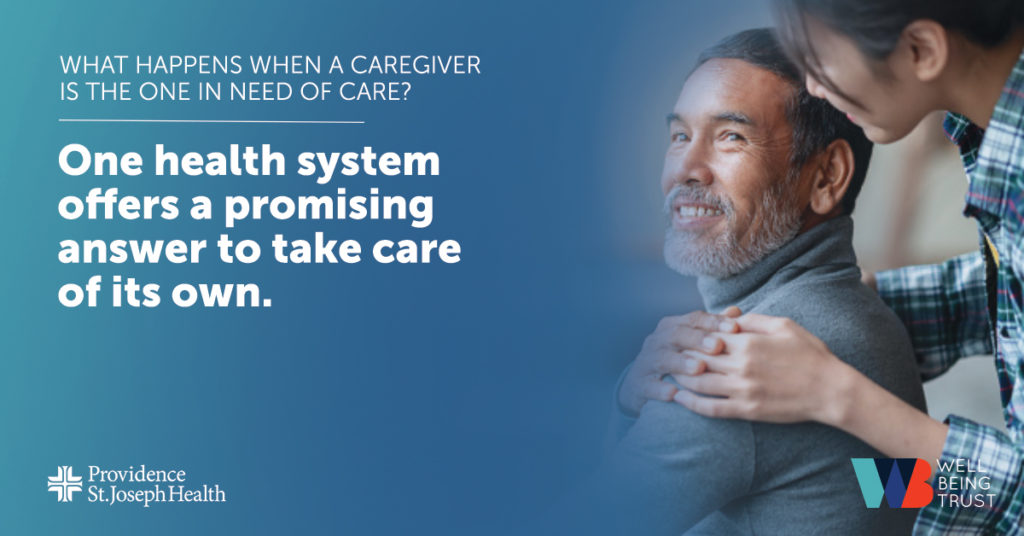Caring for the caregivers — and their families
Well Being Trust is helping Providence St. Joseph Health make sure their staff members are well taken care of so they can provide high-quality, passionate care for patients
Burnout rates among health care staff have long been a concern. Today, about 44% of caregivers in health professions experience signs of burnout — feeling disengaged, cynical, or apathetic. A stressful work environment and taxing schedule take a toll on the health of these professionals—but organizations are stepping up to safeguard the well-being of those who care for people in need.
“Caregivers face long hours and work trauma, caused by navigating death and human suffering on a daily basis,” said Dr. Arpan Waghray, chief medical officer for Well Being Trust and system director for behavioral medicine at Swedish Health Services in Seattle. “And because they always have so much on their plates, it’s difficult for them to even find time for selfcare, let alone to seek professional help should they need it.”
With this in mind, Waghray and his team are going upstream to improve the well-being of caregivers and ensure they receive timely care. In June 2019, they launched a behavioral health “concierge” program, piloting it within Providence St. Joseph Health’s Seattle-area staff. The program provides virtual counseling to caregivers and their dependents to increase access to critical services in a way that best 
A model that works
In the few months since the program’s launch, about 100 caregivers have made more than 300 visits to the service for a range of reasons. For example, when one Swedish Health Services employee unexpectedly lost a loved one, they had panic attacks, couldn’t sleep or eat, and didn’t function well at work. They called the behavioral health concierge program and had a virtual appointment just one hour later. A member of the program’s counseling team offered supportive listening and an emotional safe space to work through what had happened, all while the caregiver was comfortable in their own home.
“Telehealth is a great tool to deliver mental health services,” said Swedish’s Josh Cutler, who manages and is clinical lead for the concierge program.
Feedback from caregivers and leadership gave rise to the program. While Providence was making strides prioritizing the mental health and well-being of patients, caregivers continued to struggle with mental health concerns and reported not having adequate resources to address them.
In response, Providence’s telehealth team created a program that ensures caregivers will have a place to talk about their struggles and receive support. A counseling team consisting of five licensed clinical social workers offers same-day and next-day appointments as much as possible, ensuring accessibility when caregivers need it most.
“This program provides solutions that fit modern life—no one has to take time off to travel to an appointment because it’s virtual and that makes the program incredibly accessible,” said Patrick Lee, product director of telepsychiatry and telebehavioral health at Providence.
To better fit behavioral health care into caregivers’ busy days, Providence landed on a brief yet intensive evidence-based therapy model.
Filling a gap in care
In many regions where Providence has a presence, mental health providers are scarce and hard to access, fueling the need for more in-house mental health services across Providence’s map. In fact, 68% of caregivers who have used the program at Swedish say they wouldn’t know how to get care if the concierge program didn’t exist, Waghray said.
Confidentiality was a major concern prior to the program’s roll-out. Providence went to great lengths to ensure documentation and scheduling would live in a highly restricted place in health records that only the counseling team could see.
Lee and his team are focused on making sure the program is effective. To that end, they are measuring service use and volume of consultations to determine what might need to be improved moving forward. They’re also prioritizing employee satisfaction and looking to decrease burnout. Their net promoter score — which measures how likely a user would be to recommend the service to someone else — is in the 80s, Lee said. And they are using other clinical evaluations and tools to track improvement in health among caregivers over time.
Soon, Providence will roll the program out to all the regions it covers: first, to the rest of Washington and Montana, then to California, Texas, Alaska, Oregon and New Mexico in a phased approach during 2020. At that point, the program will be available to 110,000 caregivers and 80,000 to 90,000 dependents, Waghray said.
“I think everyone clearly understands that you need to take care of your caregivers if you want to provide the best care to patients,” he said. “But we knew we could do more, so we created this program— and, so far, it’s been tremendously successful.”







